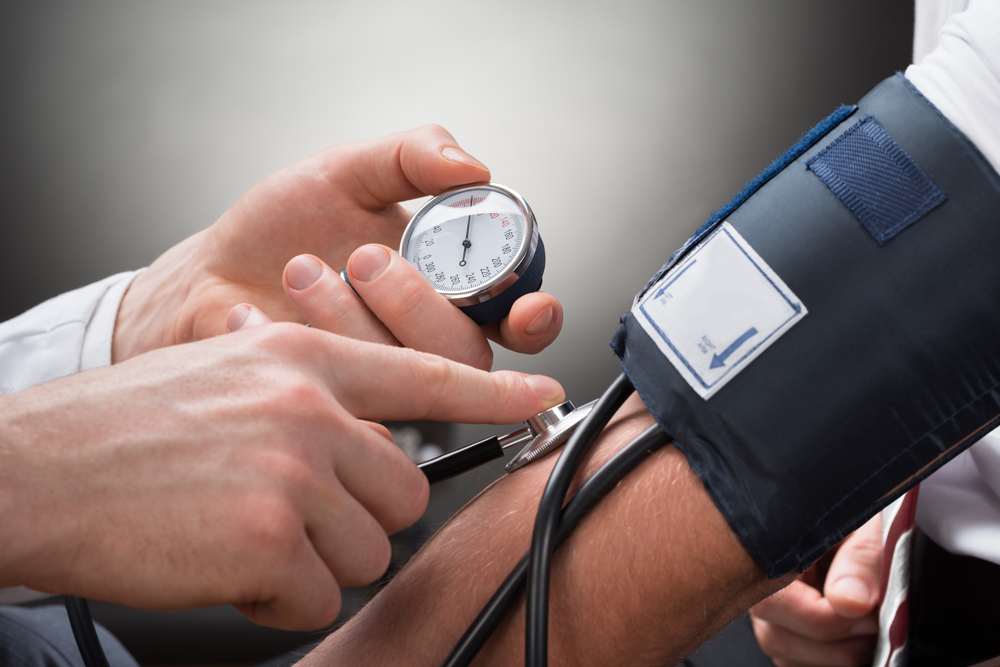High Blood Pressure & Stroke: The Silent Threat You Can Control
Share IT

Launch Your Dream Website with Us!
Click Here to Get in touch with Us.
Categories
High Blood Pressure and Stroke Risk
The Quiet Danger: Recognising Hypertension and Its Connection to Strokes
A stroke damages brain cells by obstructing blood flow to the brain, which is one of the main causes of mortality and disability globally. Known as the “silent killer,” high blood pressure significantly increases the risk of stroke. This blog post will equip you to prioritise blood pressure control for a healthier future by delving into the risks of uncontrolled hypertension and its link to stroke.
Thank you for reading this post, don't forget to subscribe!Table of Contents

What is hypertension, or elevated blood pressure?
High Blood Pressure and Stroke Risk
The force that blood exerts on your artery walls when your heart pumps is known as blood pressure. It naturally rises during a heartbeat and falls between them. Hypertension, the medical term for high blood pressure, is the result of this force being continuously raised. Less than 120/80 mmHg is generally regarded as normal blood pressure (millimetres of mercury).
The Perils of Unmanaged High Blood Pressure:
High Blood Pressure and Stroke Risk
Over time, blood arteries damaged by high blood pressure become narrowed and rigid. This may result in a number of health issues, such as:
- Heart attack risk increased: When arteries are narrowed, the heart must pump blood through them more forcefully, which raises the risk of a heart attack.
- Heart failure: Heart failure is a result of the heart muscle being weakened by prolonged high blood pressure.
- Kidney disease: Blood arteries in the kidneys can be damaged by high blood pressure, which can result in kidney disease.
Stroke Risk and Hypertension:
High Blood Pressure and Stroke Risk
The main modifiable risk factor for stroke is high blood pressure. Here’s why it poses such a risk:
- Broken Blood Vessels: Unchecked high blood pressure weakens and breaks down brain blood vessels. These compromised arteries are more vulnerable to rupturing (hemorrhagic stroke) or clotting (ischemic stroke).
- Reduced Brain Blood Flow: High blood pressure causes arteries to constrict, which lowers blood flow to the brain. If a clot forms, this decreased blood flow could result in a stroke.
How Stroke Risk Is Increased by High Blood Pressure:
High Blood Pressure and Stroke Risk
- Blood Clot Formation: Elevated blood pressure can harm the arterial lining, increasing the risk of blood clot formation. A stroke can result from these clots travelling to the brain and obstructing blood flow.
- Aneurysm Rupture: Aneurysms are caused by weak areas in blood vessel walls that expand outward. An increased risk of rupture due to high blood pressure can result in a hemorrhagic stroke.
- Silent Damage: High blood pressure frequently exhibits no outward signs. Delays in diagnosis and treatment can exacerbate the risk of a stroke by allowing blood vessel damage to worsen.
Controlling Hypertension:
High Blood Pressure and Stroke Risk
Good news! High blood pressure may be managed and treated. These are actions that you can do:
- Changes in Lifestyle: Retain a healthy weight.
- Consume a diet low in added sugars, trans and saturated fats, and sodium in a balanced way.
- Take part in regular physical activity; try to get in at least 150 minutes a week of moderate-to-intense exercise.
- Restrict your alcohol intake.
- Control your tension.
- Give up smoking.
- Medication: If lifestyle modifications alone aren’t sufficient to drop your blood pressure, your doctor may recommend medication.
The Key is Early Detection and Treatment:
High Blood Pressure and Stroke Risk
Monitoring blood pressure on a regular basis is essential for the early diagnosis and treatment of hypertension. Consult your physician about the frequency of blood pressure checks. By taking early action, you can greatly lower your risk of stroke and other health issues.
In summary:
High Blood Pressure and Stroke Risk
One significant but manageable risk factor for stroke is high blood pressure. You can effectively manage your blood pressure by focusing on routine blood pressure monitoring, adopting healthy lifestyle modifications, and collaborating with your physician if you are aware of the link between hypertension and stroke. By following these recommendations, you can lower your risk of stroke and improve your cardiovascular health in general.

Launch Your Dream Website with Us!
Click Here to Get in touch with Us.





























































Recent Comments